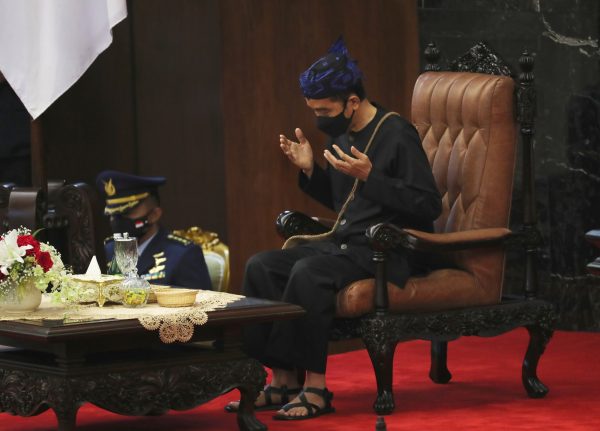For nearly 40 years, NU has held itself out as a moderate civil society organisation supporting norms like democracy, religious tolerance, and pluralism. This was particularly the case under the late Abdurrahman Wahid who was the NU chairman from 1984 to 1999 and then became Indonesia’s first democratically elected president from 1999 to 2001. Wahid’s successors at NU — Hasyim Muzadi and Said Aqil Siradj — have continued to publicly promote these moderate norms, albeit with varying levels of consistency and commitment.
The main agenda of the Muktamar is to elect a new general chairman who will lead the organisation for the next five years. Leading contenders for the chairmanship race are the incumbent Chairman Siradj and the incumbent General Secretary Yahya Cholil Staquf. Both come from the organisation’s moderate wing and are similar in their ideological and political viewpoints.
The Muktamar is also a time for its participants to reflect upon current challenges facing the NU. Two crucial challenges are to be addressed by Muktamar participants.
The first is the inconsistencies within the organisation in its effort to promote moderate norms. Such inconsistencies are attributed to how religious authority is structured within the NU. Loyalty and allegiance within the organisation do not always flow in a straightforward hierarchy. They rest on personalised networks between NU religious leaders (kyai), who are often an influential within a given Indonesian region, and their students (santri), who are linked by their ties with their former teacher.
Senior kyais have the power to dictate that their followers follow a completely different set of policies and priorities from those being propagated by the organisation’s national leadership. They often face competition for religious authority from more hard-line clerics in their localities, which motivates them to lead assaults against marginalised Muslim minorities.
Local NU clerics have led the persecution of Shiites in Sampang Regency on Madura Island and Ahmadis in Cikeusik village in the Banten province. These violent assaults and the failure of both the Indonesian authorities and NU leadership to hold clerics accountable for their actions have cast doubts on NU’s commitment to upholding religious moderation and tolerance as one of the organisation’s key priorities.
The second issue is NU’s political alignment with the Widodo administration. This alignment has raised the organisation’s political influence and increased number of NU officials appointed in key ministries. These patronage appointments were also often given to NU officials by the previous Sukarno and Suharto governments. Today, they leave NU vulnerable to criticisms for aligning itself with a government that is increasingly dismantling Indonesia’s democratic political institutions.
NU’s alliance with the Widodo administration is rooted in their common desire to neutralise threats from a resurging Islamist opposition movement against the government. This was evident during the 2019 presidential election campaign when a coalition of Islamists aligned themselves closely with retired general Prabowo Subianto’s electoral campaign against President Joko Widodo. Widodo prevailed in the polling booth thanks largely to NU support, where they endorsed the president as a moderate Islamic leader and accused Prabowo and the Islamists of plotting to establish an Islamic state in Indonesia.
Since then, the Widodo administration has adopted increasingly repressive policies against its opponents. It has frequently invoked the Law on Electronic Information and Transaction to arrest and silence critical voices who posted grievances on social media platforms. It has granted greater power to the Indonesian Armed Forces and the National Police to assume roles normally reserved for civilian authorities, particularly to mitigate COVID-19.
Most troublingly, government supporters have planned to call for a special session of the People’s Consultative Assembly (MPR) — the nation’s highest legislative body — to amend the nation’s constitution. A likely amendment would change the constitutional term limit of an incumbent president from two consecutive five-year terms to three, allowing Widodo to seek a third presidential term in the next election scheduled for 2024. So far, NU leaders have not confirmed if they would support the amendment if it were tabled in the MPR special session.
The NU has publicly committed itself as a supporter of freedom of expression, religious tolerance, and pluralism. It should use the upcoming Muktamar as a time to reflect on steps to uphold its commitment to these moderate Islamic and democratic values, regardless of whether its policy preferences align with those of Indonesia’s current ruling regime.
Alexander R Arifianto is a Research Fellow in the Indonesia Programme at the S Rajaratnam School of International Studies, Nanyang Technological University, Singapore.

